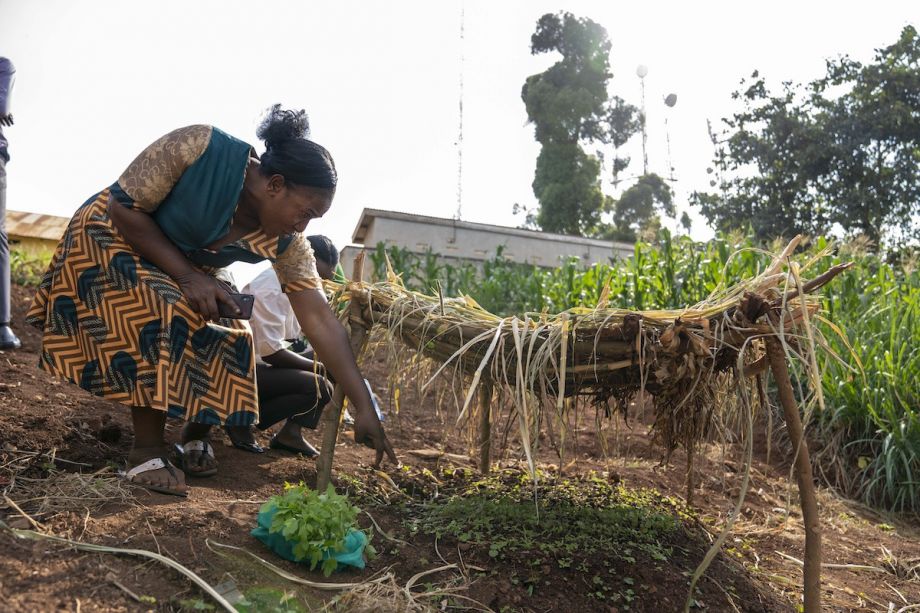Most people, in thinking about the most dramatic impacts of climate change, imagine the damage that will be wrought on rural and coastal areas. In drought-stricken regions susceptible to crop failure, and in riverside communities prone to flooding, the harms inflicted by extreme weather events have been crippling and costly to address. The existential threat this destruction poses to tribal lands and coastal communities has given rise to some of the most fervent appeals and climate activism to reach the global stage.
Yet cities and urban populations, too, are profoundly vulnerable to the impacts of climate change — especially in low- and middle-income countries in the Global South. A recent survey of seven major global South cities, published this month as part of the environmental organization Greenpeace’s Urban Justice campaign, found that less than half of residents polled said they “feel safe from extreme weather events” in the cities where they live.
We have seen this vulnerability up close in our own work at WomenStrong International, where we partner with urban and peri-urban women-led community-based organizations all over the world. When Cyclone Freddy hit the communities served by our partners in Blantyre, Malawi, last March, and Super Typhoon Odette ravaged Palawan, Philippines, in late 2021, the scope of displacement and disruption of normal life closed schools and markets, heightening the risks of sexual violence and teen pregnancy. For those whose livelihoods had been wiped out, the shock temporarily derailed all future planning — for their businesses, retirement and children’s education.
The colossal losses and setbacks resulting from each new storm tell only a part of the story.
As seasonal rains and agricultural production have become less reliable, and the influx of brackish waters from sea level rise has destroyed whole fishing communities, families have poured into cities. There, they are often forced to live in flimsy structures in flood-prone, under-resourced communities with little access to health care, affordable nutrition, quality education or jobs.
Young people now crowding into jampacked, low-income neighborhoods can begin to feel hopeless. Deprived of safe options, young women in Harare, Zimbabwe, and Phnom Penh, Cambodia, have found themselves pressed into prostitution, sex trafficking and teen pregnancy, our partners there tell us.
In Ghana, Kenya and Uganda, where the prospects for farming and fishing communities have dimmed, people have migrated to nearby cities. The young are drawn by the range of opportunities, and their grandparents by the hoped-for increased access to health care and other public goods and services.
In recent years, some groups have begun collaborating with public schools in taking a proactive approach to educating adolescents about the need for mitigation in the face of climate change. In Kumasi, Kisumu and Kampala, WomenStrong grantees and partnering schools have taught girls to plant trees and urban gardens, sew recyclable sanitary pads for their own use, and make and sell their own phosphate-free liquid soap, as part of their Girls’ Clubs curriculum.
Among the more than 6,2o0 adult respondents to the Greenpeace survey (administered by YouGov online in late August in Sao Paulo, Bogota, Istanbul, Nairobi, Bangalore, Delhi and Jakarta), the top two biggest urban issues flagged were traffic congestion and air pollution, both of which have been closely linked to climate change.
Compounding the severity of both of these impacts, of course, is the encroachment of extractive industries into peri-urban areas. These include the appropriation and desecration of public and private lands and waterways, as well as the dramatic increase in vehicle emissions.
The rampant logging and mining practiced in many low- and middle-income communities have rendered them vulnerable to landslides, flooding, ruined fishing grounds, and poisoned air and waterways, as toxic chemicals and waste are discharged into rivers and streams. This encroachment has triggered further in-migration, as those living and working near these industrial sites have sought health care, protection and new livelihoods in the nearby cities.
Despite the precarity of their cities’ wellbeing, respondents to the Greenpeace poll also found room for hope.
More than half of those polled believe their city “could become their ‘dream city,’” with residents of Nairobi, Jakarta, Delhi and Bangalore particularly optimistic about their urban futures. These four cities’ respondents place their faith largely in municipal government to improve “the quality of life in cities,” with national government coming close behind.
But residents don’t seem to expect government alone to solve their cities’ problems. Interestingly, respondents have also expressed confidence in “urban movements and communities.”
This faith in local knowledge and mobilization makes perfect sense. We know, after all, that urban expertise is local: It resides on block after neighborhood block, as residents know all too well where it tends to flood first, where the safest evacuation routes, emergency shelters, and relief centers should be located, and where those requiring urgent assistance reside.
Of course, a poll is but a snapshot, and we know that declining faith in government, often correlated with current conditions and politics, can influence these views.
Yet what’s clear here is a powerful opening for local government to partner closely with citizen movements, including a wide array of residents, from the well-heeled to the unhoused. This is an opportunity – to listen to local concerns and needs, and to test, refine, and implement local solutions.
Municipal government must engage communities in development and disaster management planning and enlist the private sector and regional and national government as needed, to furnish the financial and in-kind resources required to meet their multiple challenges.
This World Cities Day, as we celebrate cities as the complex ecosystems they are, we must take an inclusive, holistic approach. Municipalities need to enlist all those with a stake in their cities, to ensure that they can continue to serve as the vibrant social, cultural, economic and natural resources that will drive and define our collective future.

Dr. Susan M. Blaustein is the founder and executive director of WomenStrong International, a global non-profit working with 18 local women-led organizations across the globe working in low-income urban settings to advance the rights, health, and wellbeing of women, girls, and communities. She teaches sustainability studies at The Earth Institute at Columbia University.








